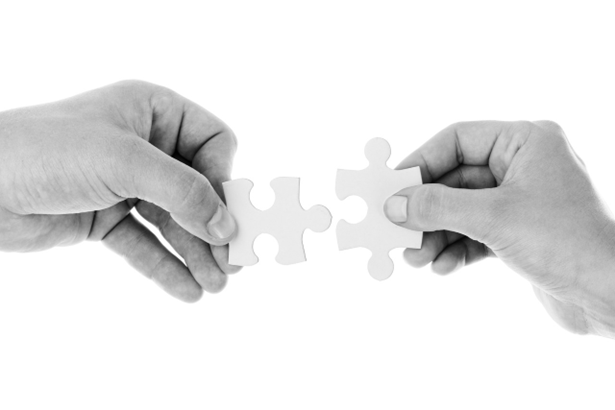The Psychology of Puzzles: Why People Love Solving Escape Room Challenges

The Neurological Thrill of Problem-Solving: A Closer Look
The brain’s response to puzzle-solving is a complex dance of cognitive processes. Imagine your brain as an intricate orchestra, with different regions lighting up and communicating as you tackle a challenging puzzle. The prefrontal cortex—responsible for executive functions—works in concert with the hippocampus (memory) and the anterior cingulate cortex (error detection and problem-solving).
What makes this neurological symphony truly fascinating is the concept of “cognitive reward anticipation.” Even before solving a puzzle, our brains begin to generate excitement. It’s similar to the anticipation you might feel waiting for the punchline of a joke or the climax of a thriller movie. This anticipatory pleasure is why many people find puzzle-solving addictively enjoyable. The brain is essentially rewarding you for the potential of solving a challenge, not just the solution itself.
Cognitive Benefits: A Mental Playground of Skills
To truly appreciate the cognitive benefits, let’s consider an analogy. Think of your brain like a muscle that gets stronger with targeted exercise. Puzzle-solving is like a comprehensive workout for your mind, targeting multiple cognitive “muscle groups” simultaneously. Unlike physical exercise confined to a gym, these mental workouts can happen anywhere—in an escape room, at a coffee shop, or in the comfort of your living room.
Interestingly, the skills developed through puzzle-solving extend far beyond the immediate challenge. Studies have found that individuals who regularly engage in complex problem-solving activities demonstrate increased neural plasticity—meaning their brains become more adaptable and efficient at learning new skills. This cognitive flexibility can translate into improved performance in work, academic, and personal life scenarios.
Social Dynamics: The Unexpected Team-Building Miracle
The social aspect of escape rooms goes beyond simple teamwork. It’s a microcosm of human interaction, compressed into a high-stakes, time-limited environment. Consider how these experiences force participants to communicate in ways they might not in everyday life. Hierarchies dissolve, and individuals are valued purely for their cognitive contributions and collaborative spirit.
One particularly intriguing psychological phenomenon observed in escape rooms is “collaborative intelligence”—where the group’s collective problem-solving capacity becomes greater than the sum of individual capabilities. This isn’t just about working together; it’s about creating a temporary, symbiotic cognitive ecosystem where each person’s unique perspective becomes a critical piece of the puzzle.
Flow State: The Ultimate Psychological Sweet Spot
Think of flow state as a magical cognitive zone where time seems to suspend, self-consciousness disappears, and you’re completely absorbed in the present moment. Escape rooms are meticulously designed to trigger this state, creating an environment that demands full attention while providing continuous, incremental rewards.
The beauty of flow state in escape rooms is its democratic nature. Unlike competitive sports or complex video games that might require specific skills, escape rooms can induce flow for participants with varying cognitive abilities. The carefully calibrated difficulty ensures that most people can experience this profound state of engagement, regardless of their background or expertise.
Narrative and Immersion: More Than Just Puzzles
Storytelling in escape rooms taps into our most fundamental psychological needs. Humans are narrative creatures—we understand the world through stories, and we crave meaningful contexts for our actions. An escape room isn’t just a series of puzzles; it’s a living, breathing narrative that you actively participate in creating.
Consider how different themes—a haunted mansion, a space station, a historical heist—fundamentally alter the psychological experience. The narrative provides emotional stakes, transforming abstract problem-solving into a deeply personal journey. It’s the difference between solving a math equation and being the hero who prevents a fictional catastrophe.
Personal Growth and Psychological Resilience
Escape rooms serve as compressed life lessons in resilience and adaptability. Each challenge overcome is a miniature victory, a moment of proving to yourself that you can handle unexpected obstacles. This psychological mechanism is similar to exposure therapy, where controlled challenging experiences help build confidence and reduce anxiety.
Many participants report a profound sense of empowerment after completing an escape room. It’s not just about solving puzzles; it’s about challenging internal narratives of limitation. The experience whispers (sometimes shouts) a powerful message: “You are more capable than you think.”
Conclusion: The Profound Psychology of Play
Escape rooms represent a remarkable intersection of neuroscience, psychology, storytelling, and human interaction. They are not mere entertainment but sophisticated psychological experiences that fulfill multiple human needs: cognitive stimulation, social connection, narrative engagement, and personal growth.
As our understanding of human psychology deepens, escape rooms stand as a testament to our species’ remarkable capacity for play, learning, and collaborative problem-solving.